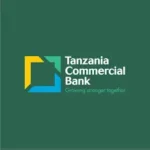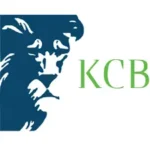Senior Manager Commercial at NCBA Bank | June 2024
Job Description
NCBA invites you to join us in our quest to create great moments for everyone, everyday!
Job Title: Senior Manager, Commercial
Reports to: Head, Digital Business
Department: Digital Business
Job Purpose Statement
The role holder will be responsible for developing and executing our commercial strategy to achieve revenue targets and drive growth across the various ecosystems. This entails target market identification: Identify the customer segments or geographies where the company can achieve the highest growth potential. This involves researching the market, analyzing customer behavior, and understanding competitors. S/He will determine the value proposition of the products and services offered by the company and how they can differentiate from the competition. This includes developing a clear understanding of customer needs and the features and benefits that meet those needs.
The Senior Commercial Manager will be responsible for price management for products and services that are competitive in the market while also delivering the desired level of profitability. This involves understanding the customer’s willingness to pay and what competitors are charging for similar products. S/He will be responsible for developing a comprehensive plan to reach and engage with customers through targeted advertising, content marketing, and sales outreach informed by retention and activation streams.
S/He will Identify and pursue strategic partnerships that can help the company expand its reach, develop new products, or enter new markets. This may involve partnerships with other technology companies, financial institutions, or other businesses that serve the target market. They will oversee the digital sales and physical sales teams and be responsible for developing and executing sales strategies that drive revenue growth. This includes monitoring the sales pipeline, setting targets and quotas, and ensuring that the sales team has the resources and training they need to succeed. Finally, the role holder will be responsible for developing and managing strategic partnerships and identifying new business opportunities that can help drive growth. This involves identifying potential partners, negotiating agreements, and ensuring that partnerships are aligned with the company’s strategic objectives.
Key Accountabilities (Duties and Responsibilities)
- Revenue growth: Drive revenue growth for the Digital Business, which involves developing a comprehensive commercial strategy that targets new markets, identifies new customer segments, and drives sales and marketing initiatives to meet revenue targets.
- Gross margin growth: Focus on profitability. This involves managing costs, optimizing pricing strategies, and driving operational efficiency to ensure that the company is operating in a financially sustainable manner.
- Customer lifetime value: The Senior Manager, Commercial must focus on maximizing customer lifetime value by building strong customer relationships, reducing churn, and increasing expansion revenue from customers. This involves developing and executing customer retention strategies.
- Return on investment: Ensure that the business is getting a return on its commercial investments, by tracking and measuring the effectiveness of sales and marketing initiatives, partnerships, and other commercial programs to ensure that they are delivering the desired results.
- Market share: Focus on increasing market share by identifying and pursuing growth opportunities in new and existing markets. This involves developing and executing market entry and expansion strategies and ensuring that the company is competitive in the marketplace.
- Sales and marketing process optimization: Optimize digital and in-person sales and marketing processes to ensure that the business is able to target and acquire new customers effectively. This involves streamlining processes, identifying and removing bottlenecks, and continuously improving the effectiveness of the sales and marketing efforts.
- Cross-functional collaboration: Foster cross-functional collaboration across the organization to ensure that the company is able to effectively execute its commercial strategy. This involves working closely with other departments, including the Group Product, Engineering, and Risk, Customer Operations teams, to ensure that everyone is aligned around the company’s commercial objectives and working together to deliver value to customers.
- Performance tracking and measurement: Track and measure performance to ensure that the business is achieving its commercial objectives and making progress toward its financial and growth targets. This involves setting performance metrics and tracking progress against these metrics, identifying areas for improvement, and making adjustments to the company’s commercial strategy as needed.
- Customer acquisition: Drive customer acquisition, which involves identifying and pursuing new customer segments, developing effective sales and marketing strategies to reach these customers, and ensuring that the business is meeting their needs and delivering value.
- Customer retention: Focus on customer retention. This involves developing and executing Digital Business customer retention programs and ensuring that the company is delivering an exceptional customer experience that keeps customers coming back.
- Customer satisfaction: Ensure that the business is delivering a high level of customer satisfaction by monitoring customer feedback and acting to address customer concerns and issues. This involves building strong relationships with customers, providing excellent customer service, and ensuring that the company is meeting its commitments and delivering on its promises.
- Customer lifetime value: Focus on maximizing customer lifetime value by building strong customer relationships, reducing churn, and increasing cross-sell and upsell opportunities. This involves developing and executing customer retention and loyalty programs for Digital Business customers and ensuring that the customer experience is exceptional.
- Customer feedback and insights: Focus on gathering customer feedback and insights to inform the business product and service offerings. This involves conducting customer surveys, analyzing customer data, and using customer insights to drive product innovation and improve the customer experience.
- Continuous learning: Prioritize continuous learning and development for themselves and their team. This involves staying up to date with the latest industry trends, attending conferences and events, and seeking out new knowledge and best practices to inform the company’s commercial strategy.
- Talent development: Focus on developing and growing their team to ensure that they have the skills and expertise needed to execute the company’s commercial strategy. This involves providing training and development opportunities, mentoring and coaching team members, and fostering a culture of continuous learning and growth.
- Innovation: Prioritize innovation and encourage their team to think creatively and identify new ways to drive growth and profitability. This involves staying up to date with emerging technologies and market trends, identifying new opportunities for growth, and fostering a culture of experimentation and innovation.
- Strategic partnerships: Identify and build strategic ecosystem partnerships that can help the business achieve its commercial objectives. This involves developing strong relationships with partners, identifying opportunities for collaboration and co-creation, and leveraging partner capabilities to drive growth and innovation.
- Data-driven decision-making: Prioritize data-driven decision-making to inform the business strategy. This involves analyzing customer and market data, tracking performance metrics, and using insights to make informed decisions and drive continuous improvement.
Ideal Job Specifications
Academic:
- A Bachelor’s degree in Business or related fields.
- MBA or a Master’s degree in a business field is desirable.
Professional:
- At least eight years’ work experience, four of which should have been in management position in a Technology company or Fintech or Telco or FMCG and at least two in a senior management role. Should have participated in strategy development and implementation, and having led large successful business development projects and/or initiatives.
Technical Competencies
- Strategic thinking: Think strategically about the company’s commercial objectives, the competitive landscape, and the needs of its customers.
- Business acumen: Have a strong understanding of the company’s financials, as well as a deep understanding of the broader business environment in which the business operates. This involves keeping up-to-date on industry trends, market dynamics, and regulatory changes, and being able to apply that knowledge to develop effective commercial strategies.
- Customer focus: Have a strong focus on the needs and preferences of the business’s customers, developing a deep understanding of customer needs and pain points, and using that knowledge to develop products, services, and marketing strategies that appeal to specific customer segments.
- Innovation: Identify and develop innovative products and services that can help the business differentiate itself from its competitors and drive growth.
- Results orientation: Focus on achieving specific business objectives, such as revenue growth and profitability, by setting clear goals, measuring progress against those goals, and making adjustments to the business commercial strategy as needed in order to achieve those objectives.
- Customer empathy: Have a deep understanding of the needs and preferences of the business customers, should develop empathy for customers, conduct user research, and incorporate customer feedback into the design of the platform.
- Design thinking: Apply design thinking principles to the platform design process by developing user-centered design solutions, prototyping and testing designs, and iterating based on user feedback
- Technical knowledge: Strong understanding of the technical aspects of platform design, including APIs, data models, and software architecture and should work closely with engineering and product teams to ensure that the platform is designed in a way that is scalable, reliable, and secure.
- Collaboration and communication: Collaborate effectively with cross-functional teams; communicating effectively, building consensus, and aligning teams around a common vision for the platform.
- Innovation: Drive innovation in the platform design process whilst staying up-to-date on emerging technologies and trends, exploring new design approaches, and experimenting with new features and functionality.
- Business acumen: Strong understanding of the business implications of platform design decisions and should be able to balance the needs of customers with the needs of the business, understanding the competitive landscape, and making data-driven decisions that drive growth and profitability.
- Strategic thinking: Think strategically about the business partner ecosystem and how it can drive growth and achieve its commercial objectives. S/He should have an understanding the company’s digital financial services’ competitive landscape, identifying emerging trends and technologies, and anticipating changes in customer needs and preferences.
- Relationship building: Strong relationship building skills, including the ability to establish and maintain strong relationships with partners; with the ability to identify potential partners, building rapport, and working collaboratively to achieve shared goals.
- Negotiation: Negotiate effectively with partners, including negotiating terms of agreements, pricing, and other commercial terms. This involves understanding partner motivations, identifying areas of mutual benefit, and building consensus around shared goals.
- Communication and collaboration: Communicate effectively with internal teams and external partners, building consensus around shared goals, managing expectations, and communicating complex technical concepts in a clear and concise manner.
- Financial Acumen • Financial analysis: Strong understanding of financial analysis, including the ability to analyze financial data, identify trends, and develop insights that inform business strategy.
- Budgeting and forecasting: Develop and manage budgets and forecasts, including developing financial models, monitoring financial performance, and making adjustments as necessary to meet financial objectives.
- Risk management: Deep understanding of risk management, including identifying and mitigating financial risks.
Behavioural Competencies
- Self-awareness: Strong sense of self-awareness, including understanding their own emotions, strengths, and weaknesses. S/He should be able to reflect on their own experiences and take feedback constructively.
- Empathy: Understand and empathize with the emotions and perspectives of others, including customers, employees, and partners. This involves listening actively, reading nonverbal cues, and demonstrating understanding.
- Relationship building: Strong relationship-building skills, including the ability to establish and maintain positive relationships with stakeholders. S/He should be approachable, responsive, and supportive.
- Conflict resolution: Manage conflict effectively, including understanding the emotions and perspectives of different parties and working collaboratively to find a mutually beneficial solution
- Communication: Communicate effectively, including being able to listen actively, speak clearly and concisely, and adjust communication styles to fit different audiences.
Social and Cross-cultural Awareness
- Cultural intelligence: Deep understanding of different cultures, including their customs, values, and communication styles. S/He should be able to adapt to different cultural contexts, including recognizing and respecting cultural differences.
- Global mindset: Global mindset, including understanding global trends and their impact on the company’s business; staying up-to-date on global news and developments and building a network of global contacts.
- Inclusive leadership: Inclusive leader, including being able to recognize and value diverse perspectives and experiences, creating an environment where everyone feels valued and respected, and ensuring that all voices are heard.
- Social responsibility: Strong sense of social responsibility, including understanding the impact of the company’s actions on society and the environment.
- Interpersonal communication: Communicate effectively with stakeholders from diverse backgrounds, including being able to adapt communication styles to fit different cultural contexts. This involves being able to listen actively, read nonverbal cues, and demonstrate empathy and understanding.
Leadership
- Visionary leadership: Clear and compelling vision for the company’s commercial strategy and be able to communicate it effectively to their team and other stakeholders. S/He should set ambitious goals, identifying new business opportunities, whilst inspiring others to join them in pursuit of a shared vision.
- Strategic thinking: Think strategically and identify opportunities for growth by analyzing market trends and competitive forces, identifying potential partners and acquisition targets, and developing and implementing strategic plans.
- Collaboration and influence: Collaborate effectively with internal and external partners, as well as with other stakeholders. S/He should build strong relationships, influencing others through persuasive communication, and being able to negotiate and resolve conflicts.
All qualified applicants will receive consideration for employment without regard to race, color, religion, sex, sexual orientation, gender identity, national origin, or disability.
Requisition ID: 2345





